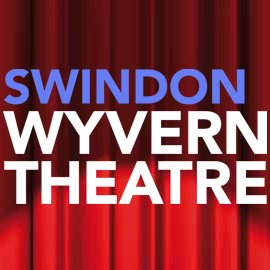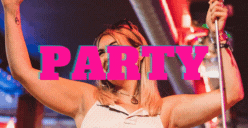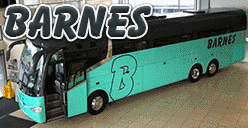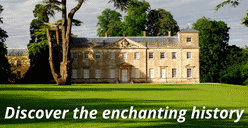TGt Meets ... Saba Douglas-Hamilton
We caught up with Saba Douglas-Hamilton, highly acclaimed elephant conservationist, and wildlife TV presenter of This Wild Life and Big Cat Diaries.
You obviously have a love for wildlife/ animals, when did this become an interest of yours?
The first animals I fell in love with were probably our pet genet cats and mongoose when I was very little, living in Manyara National Park, Tanzania, where my dad was doing his behavioural research on elephants. All of them had been found as orphans by the rangers and nursed back to life by my mum. The mongoose used to get very jealous of me as it was particularly possessive of my mother, but the genets were the sweetest creatures you can imagine with a delightful habit of leaping up onto our shoulders to sling themselves around our necks.
Growing up amongst elephants and watching them interact with one another on a daily basis cemented my love for all wild creatures in a much deeper way. I found elephants to be endlessly fascinating, partly because they were so much like us but mostly because they were such drama queens! Elephants do everything on a big scale – love, joy, grief, anger, lust – it makes us look rather boring and grey in comparison. Through them I began to learn that everything in nature is connected, and how their presence or absence affects entire ecosystems.
When I was in my teens, poaching of elephants for ivory spiralled out of control and I witnessed the slaughter first hand. It was absolutely sickening, and brought home to me how fragile their existence was. That’s when I realised that I would be involved in elephant conservation one way or another for my entire life.
You have presented several wildlife shows, is being a presenter something you’ve always wanted to do?
I never even thought about presenting until it fell into my lap one day quite by chance! I was working for my father as his first Chief of Operations at Save the Elephants, and the BBC was keen on making a film on his work. So I came along with him to pitch some ideas and a talent scout decided to try me out. That was about 16 years ago! I feel extremely fortunate to have been able to travel to some of the more remote and beautiful parts of the world to film rare or endangered species. Filmmaking can be enormously rewarding because it’s such a team effort. Every single crewmember is a crucial cog in the wheel, for what good is a film without a seamless soundscape, the cameraman’s keen eye, or the sculpting finesse of an editor?
Where’s your favourite place that you’ve travelled too?
Going to meet the forest elephants (Loxodonta cyclotis) in the Central African Republic was pretty special. It was rather tense politically, but we flew into the Dzanga Sanga forest without passing through the capital. I remember walking through the rainforest towards a bai (the forest clearings where elephants and gorillas like to gather), and hearing a crazy symphony of bubbling that I couldn’t quite place. As we stepped out of the trees it was like arriving on Planet Elephant. Scores of forest elephants with their funny downward-pointing Dracula tusks were kneeling on the streambeds with trunks probing deep into holes underwater, blowing streams of bubbles to coax the minerals out of the soil. It was like hearing the original song of the forest and truly one of the most magical moments of my life.
Which is your favourite animal that you’ve come across?
It’s very hard to choose between animals – each is my favourite in its own way. I love peering into the black eyes of a gorilla and feeling their ancient connection to us, I love elephants for their ability to express complex emotions like empathy and compassion, and lions for their sheer gall and brute strength. Then all the smaller things too like the bats that hunt the myriad insects around my bathroom light, the owls that roost in the tree above my tent, and a red cobra that sings with a loud chirrup on its way past our research centre in the evening. Each is a specialist in its own niche, and each is part of the glorious fabric of life on which we all depend.
What can audiences expect from ‘A Life With Elephants’?
With a title like that you might think it’s only going to be about elephants! But it’s not. They’re obviously a big part of it, especially at the beginning when I talk about my childhood in the wilds of Tanzania and Uganda, but there’re also lots of fun stories about working with polar bears, big cats, and great apes as a wildlife film maker, and some of the nail-biting encounters I’ve had along the way! The first part is great for kids from the age of about six and up, but after the interval I go more in-depth on the work we are doing with elephants and conservation and how it all links up to the bigger picture.
Of all the things you’ve seen in your line of work, what has been the most spectacular/unique?
The strangest thing I’ve ever seen was a young lioness in Samburu National Reserve that adopted a small antelope calf and looked after it for 16 days. My sister and I were lucky enough to have it happen right where we live and work, so we filmed the whole thing from start to finish. Our footage was shown all over the world on international news channels, which we later made it into a film called Heart of a Lioness. We spoke to several top lion experts to try and piece together why it happened, but it still remains one of the strangest mysteries I’ve ever come across.
Would you like to do more tours in the future?
Yes, I’d love to do more tours, visiting all the places in the UK I’m not going to this time! Any ideas on nice venues are more than welcome.
Aside from this theatre project, are there any other projects you’d like to take on?
At the moment I'm deeply involved in conservation work in north Kenya, raising awareness about the plight of the elephants and trying to get people interested in the conservation cause. There’s so much that needs to be done that it can feel a little overwhelming at times. Most of my work takes place at Elephant Watch Camp in Samburu National Reserve, a beautiful eco-lodge built by my mother in 2001 that specialises in all things elephant, where I live with my family. But I do also travel quite a lot for conservation events or to give talks both in the UK and USA. Right now, my hands are pretty full with kids, conservation tourism, and fighting hard to redress the dire state of elephants and their habitat. But one day, when I have a bit more time, I hope to write a book.
What would be your advice to anyone aspiring to join this line of work?
Try to get into the field as much as possible and get to know the people working on the ground. Then follow your heart and don’t take no for an answer. Once you get your foot in the door, work hard, be enthusiastic, make yourself indispensable and let whomever you’re working for harness your energy and passion for the cause.






















